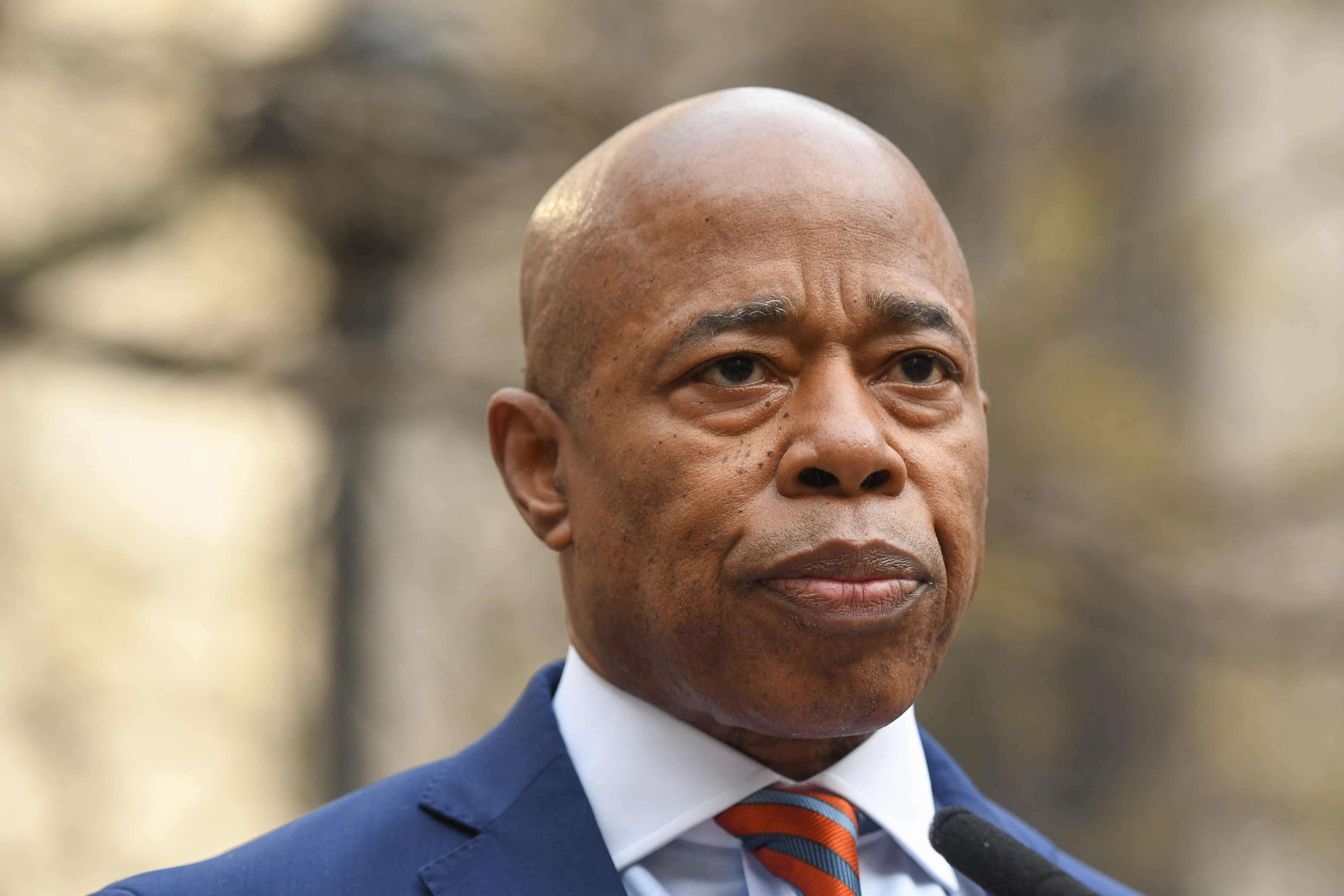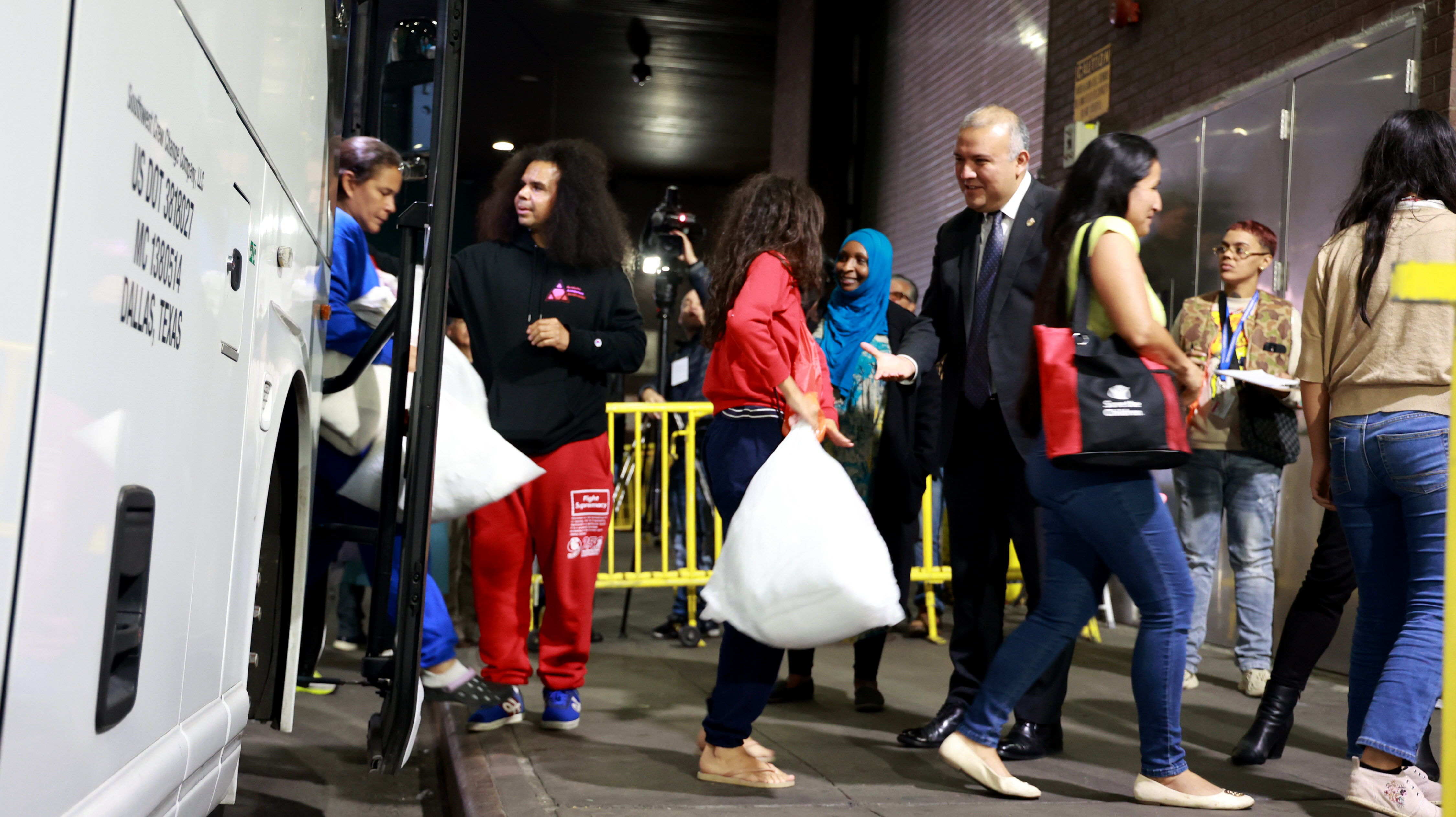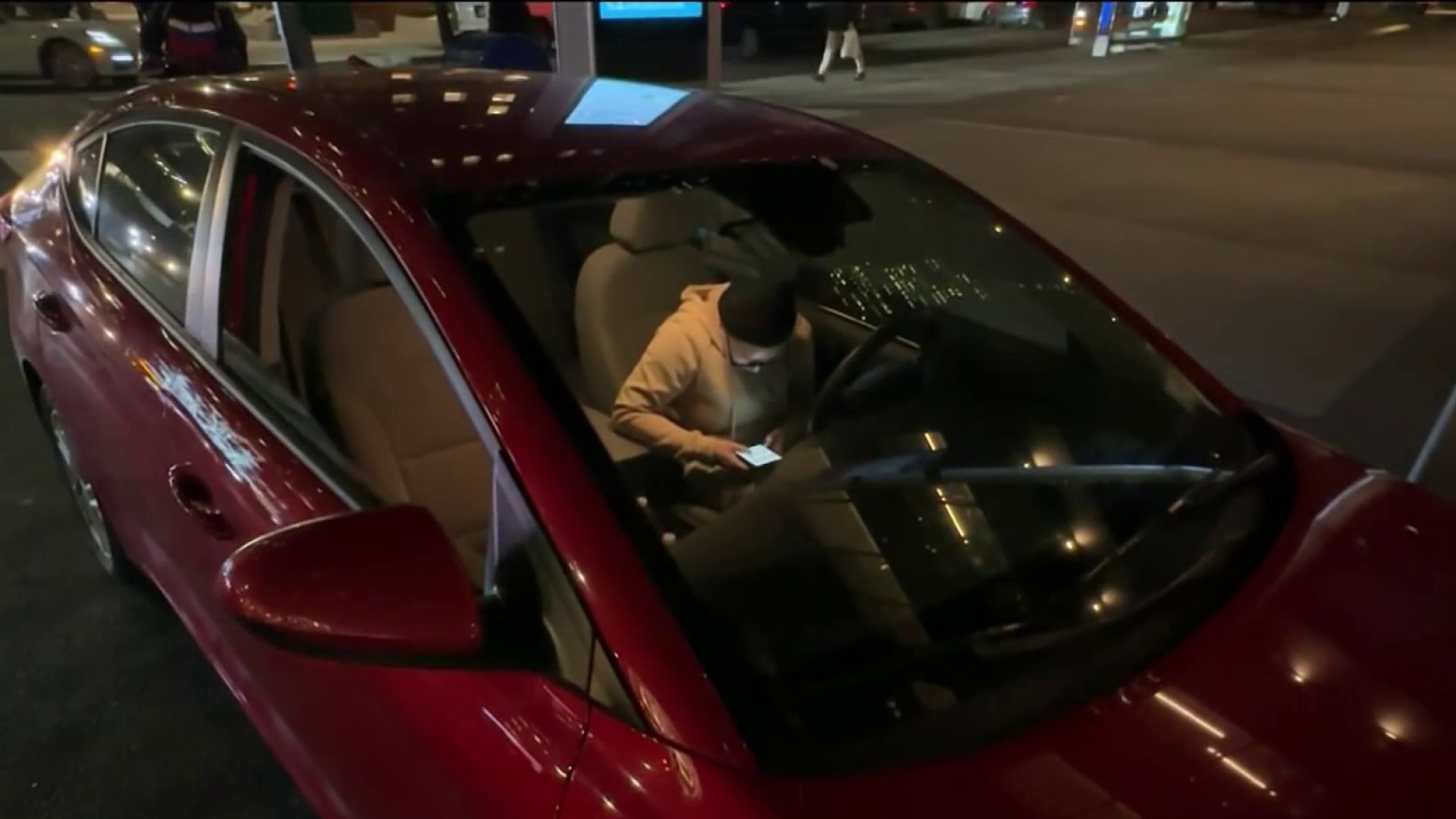New York City Mayor Eric Adams asked a judge on Tuesday to let the city suspend its long-standing “right to shelter” obligation, saying officials are no longer able to house every homeless person because of the arrival of tens of thousands of international migrants.
The right to shelter has been in place for more than four decades in New York, after a court in 1981 required the city to provide temporary housing for every homeless person who asks for it. Other big U.S. cities don’t have such a rule.
But with the arrival of 70,000 asylum seekers since last spring, many of whom crossed into the U.S. from Mexico, the city has been challenged to find room for everyone in need of a temporary roof and bed.
Get Tri-state area news delivered to your inbox.> Sign up for NBC New York's News Headlines newsletter.
“It is in the best interest of everyone, including those seeking to come to the United States, to be upfront that New York City cannot single-handedly provide care to everyone crossing our border,” Mayor Adams said in a statement.
“Being dishonest about this will only result in our system collapsing, and we need our government partners to know the truth and do their share,” said the mayor, a Democrat.
Adams said he was not seeking to permanently end the right to shelter but was seeking “clarity from the court.”
A city official said the Adams administration is looking to bring all involved parties back to the table and get more information on the rule, which was established well before the city was dealing with an influx of tens of thousands of asylum seekers. The official told NBC New York said the city wants some guidance on what they can do going forward given space, staffing and financial constraints.
The proposal was condemned by some housing advocates, who said it could result in more people living outdoors. In a joint statement, the Legal Aid Society and the Coalition for the Homeless blasted the city's idea.
"The administration’s request to suspend the long-established State constitutional right that protects our clients from the elements is not who we are as a city. New Yorkers do not want to see anyone, including asylum seekers, relegated to the streets," the statement read. "We will vigorously oppose any motion from this Administration that seeks to undo these fundamental protections that have long defined our city."
Joe Loonam, housing campaign coordinator for the advocacy organization VOCAL-NY, said Adams wants “to end the right to shelter that has prevented New York City from following in the footsteps of places like L.A. and San Francisco where thousands of people are in horrendous conditions out on the street.”
Catherine Trapani, executive director of Homeless Services United, a nonprofit that advocates for affordable housing, urged the city to alleviate the shelter crisis by increasing rental assistance programs.
“There are alternatives,” she said. “The mayor does not need to take this drastic step to limit what should be a fundamental right.”
In a statement, City Council Speaker Adrienne Adams and Deputy Speaker Diana Ayala called the application "troubling" and wondered if New Yorkers would be left to sleep on the street or elsewhere.
"It's beyond disturbing that so much effort is being spent on rolling back protections for all New Yorkers, instead of implementing immediate and long-term solutions that can help us avoid and move out of shelters
New York’s shelter system is now filled to record levels. The city says it is currently providing housing for 93,000 people. In recent months it has rented out entire hotels to house the influx of migrants, at great cost. It has also put cots in schools, and temporarily housed people in tents, a cruise ship terminal and a former police academy building.
In a letter to the deputy chief administrative judge for New York City Courts, the city’s lawyers asked for a change in the mandate that would allow officials to suspend the right to shelter when the Department of Homeless Services lacks the resources to house everyone safely.
The request comes nearly two weeks after Adams issued an executive order loosening the city's legal restrictions on right-to-shelter rules.
That initial order targeted three things. First, it suspended a rule prohibiting families with children from being housed in congregate settings, such as barracks-style shelters. The change allowed the city to place families in already established shelters rather than looking for new places (like hotels outside the city) to house families.
Another change relaxed a rule requiring the city to get a bed for people within a certain time-frame. Before the mayor's executive order on May 10, families with children who had applied for shelter before 10 p.m. were guaranteed placement in a shelter unit at some point that night.
The previous order also loosened a rule regarding unlawful evictions and how they apply to shelter residents. Under the exception, those who are put into hotels would be excluded from the rule that anyone living in a NYC dwelling for 30 days can't be immediately evicted without certain legal proceedings.
At the time, a city spokesperson said it was "not a decision taken lightly and we will make every effort to get asylum seekers into shelter as quickly as possible." Advocacy groups said that Adams was "heading down a dangerous road" with the initial changes. The Legal Aid Society and Coalition for the Homeless said they were considering their options, including possible litigation.
Adams has sought financial help from the state and federal government and has been critical of President Joe Biden’s administration for not providing funding to care for migrants. In an appearance on the CBS News program “Face the Nation” on Sunday, Adams said the White House offer of $30 million is insufficient.
“We’ve spent over a billion dollars,” the mayor said. “We’re projected to spend close to $4.3 billion, if not more. This estimate was based on a number of migrants coming to the city, and those numbers have clearly increased.”
In recent weeks, the city has begun paying to house some asylum seekers at hotels in counties north of the city, but that action has stoked anger and accusations that the city was dumping its problems on other communities. On Tuesday, Dutchess County became the latest to be granted a temporary restraining order barring the mayor from busing migrants to hotels there.
However, the owners of the suburban hotels said they made a deal with NYC to provide lodging to migrants in need of help — but claim politically motivated county leaders are illegally blocking them from keeping their end of that deal. In a lawsuit filed in federal court on Monday, the hotels argued that the county leaders are aggressively targeting them and threatening to destroy their businesses for agreeing to provide rooms to asylum seekers.
The lawsuit alleges the counties — 26 named in all — bullied the hotels with court challenges, issued executive orders and withheld permits, all of which interferes with their contracts. The hotels say it's unconstitutional, as is what they claim is selectively enforcing zoning laws to keep out asylum seekers.
"Defendants have exceeded their power and authority and have targeted and retaliated against Plaintiffs for helping people in need. Defendants have made clear their reasons are not noble, but are unlawful and reek of discrimination," the lawsuit alleges.
In a statement, a Rockland County spokesperson said it is "against local zoning laws for hotels and motels to operate as a shelter," adding that the county "always puts people before profit" and that their actions were "taken to protect residents from the irreparable harm this would cause."
In the initial months of the crisis, Adams heralded the “right to shelter” mandate as an emblem of his city’s empathy toward asylum seekers. Many of the first arrivals were bused to New York by the governors of Republican-led border states including Texas and Arizona who were trying to bring attention to the border crisis. The governors also targeted Washington, D.C., another city with a Democratic mayor.
Associated Press writer Deepti Hajela contributed to this report.




